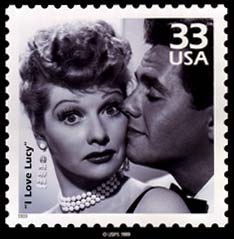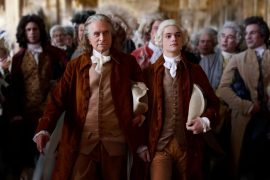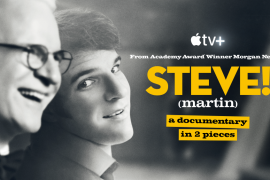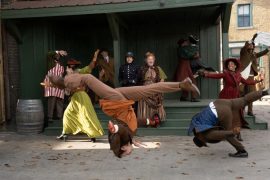If you thought Aaron Sorkin had some ‘splainin’ to do for liberties taken with his biopic “Being the Ricardos,” you might want to compare it to this new documentary from a first-time director who knows from comedy — Amy Poehler.
With the help of 23 hours of recorded conversations left behind by Lucille Ball, Poehler lets her two subjects tell their own story.
The documentary also features plenty of archival clips, some from talk show hosts from the past such as Johnny Carson and David Frost, featuring both Lucy and Desi looking back at their careers.
At one point, Frost stops Lucy cold by asking her to define love.
“Um, it’s a wonderful thing that I feel when you say that; not that you can do no wrong, but that I would do anything in the world to make you happy,” she answers. “I’ve never been asked that before. How do you define love?”
It’s a question that is central to thos documentary. Lucy and Desi were married for 20 years. The first eight-and-a-half, however, they seldom saw each other with Desi in the army for three-and-a-half and later on thge road with his band for five.
advertisement
When they teamed as a couple on I Love Lucy in 1951 — partially in an effort to save their marriage — the highs and lows and the pressures of being television’s golden goose, plus Desi’s drinking and affairs, led to their divorce in 1960. It became official a day after their final hour-long Lucy-Desi special aired.

Much of the story will be familiar to those of us who have binged TCM’s “The Plot Thickens” podcast about the actress. In archival clips, Lucy’s younger brother, Fred Ball, goes over the dramatic details of her early life in Jamestown, NY, where an accidental shooting turned everything upside down. Family, we learn, was paramount to both Lucy and Desi, with each eventually becoming the heads of their own clan.
We see clips of Lucy’s early years in Hollywood where she became “Queen of the ‘B’s” in a string of low-budget programmers. One of the stars she admired most was Ginger Rogers, herself not the most naturally gifted dancer or actress but someone who Ball says worked harder than anyone to rise to a challenge.
There is also commentary from key people in their lives, including Carol Burnett, Bette Midler and Charo, once married to Desi’s Cuban bandleader/mentor Xavier Cugat. Burnett, who teamed with Ball in the ’60s and ’70s on a few memorable network variety specials, says I Love Lucy endures because the series delivered belly laughs — something rarely achieved in today’s sophisticated dramedies.
A key contributor to the documentary is Lucie Arnaz Luckinbill, the couple’s now 70-year-old daughter, who finds that she’s much more forgiving looking back on her parent’s sometimes tempestuous lives. Son Desi Jr. is also featured, as is TV comedy legend Norman Lear.
Poehler also took advantage of a fascinating 1953 Desilu production short which offers a peek behind the scenes at an actual episode of I Love Lucy, including shots of Desi doing the opening warm-up of the studio audience.
All-in-all, viewers who already cherish the Lucy-Desi legacy will find this doc goes down tasty like Vitameatavegimin. For others, Poehler delivers a sweet, entertaining and well-documented way into television’s most enduring love story.






